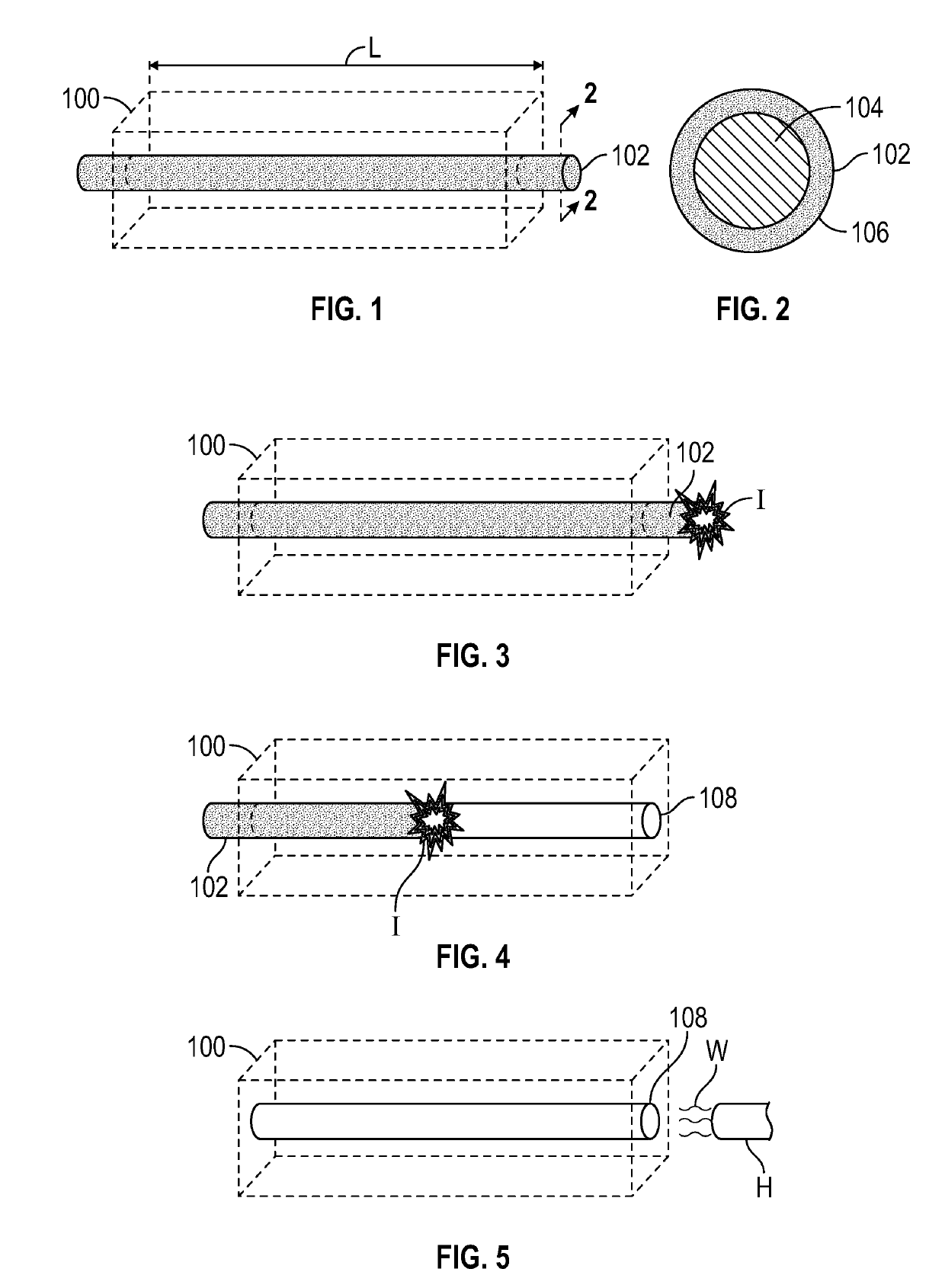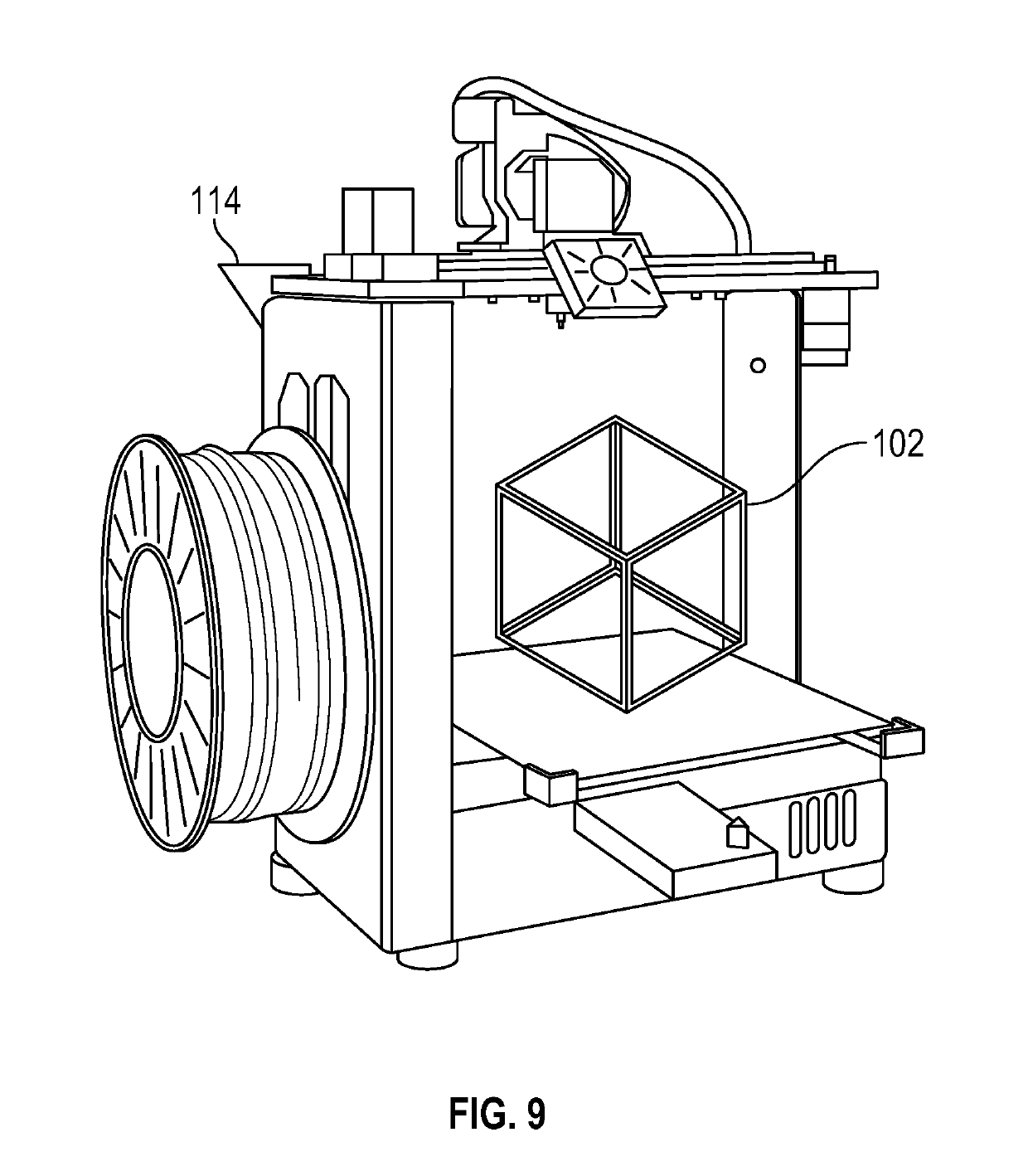Vascular channel manufacture by deflagration
- Summary
- Abstract
- Description
- Claims
- Application Information
AI Technical Summary
Benefits of technology
Problems solved by technology
Method used
Image
Examples
Embodiment Construction
[0025]With reference to FIG. 1, the present disclosure describes a method of forming channels within a substrate 100 using deflagration of a sacrificial material. The substrate 100 may be wholly or partly made of a polymer or a polymer composite. In this method, a sacrificial component 102 is molded directly into the substrate 100 as shown in FIG. 1. For example, the sacrificial component 102 is molded directly to the substrate 100 such that the sacrificial component 102 is at least partially disposed inside the substrate 100. For instance, after molding, a majority of the sacrificial component 102 may be entirely disposed inside the substrate 100 to facilitate the formation of thru-holes. However, at least part of the sacrificial component 102 should be disposed outside of the substrate 100 to allow it to be ignited as discussed below.
[0026]With specific reference to FIG. 2, the sacrificial component 102 includes a combustible core 104 and a protective shell 106 surrounding the com...
PUM
| Property | Measurement | Unit |
|---|---|---|
| Temperature | aaaaa | aaaaa |
| Moldable | aaaaa | aaaaa |
| Metallic bond | aaaaa | aaaaa |
Abstract
Description
Claims
Application Information
 Login to View More
Login to View More - R&D
- Intellectual Property
- Life Sciences
- Materials
- Tech Scout
- Unparalleled Data Quality
- Higher Quality Content
- 60% Fewer Hallucinations
Browse by: Latest US Patents, China's latest patents, Technical Efficacy Thesaurus, Application Domain, Technology Topic, Popular Technical Reports.
© 2025 PatSnap. All rights reserved.Legal|Privacy policy|Modern Slavery Act Transparency Statement|Sitemap|About US| Contact US: help@patsnap.com



